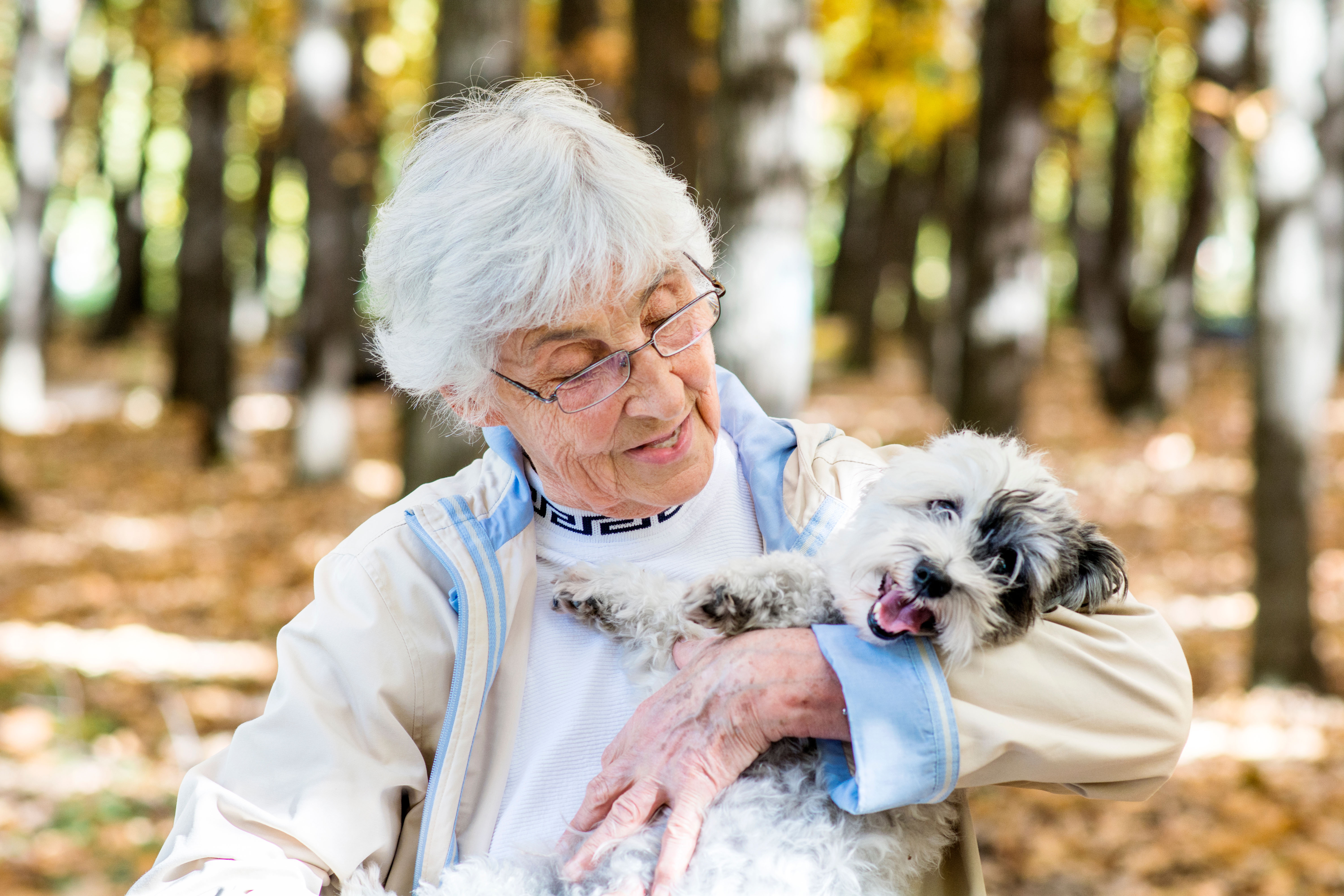Not going to happen with me, pets would prevent spur of the moment travel and be extremely expensive to board on long vacations. Both of which prevent dementia by increasing social connections. Those social connections are much more important to me than having a pet and I believe more likely to prevent dementia. But I'm not medically trained, so don't listen to me.
Long-term pet ownership may help older adults retain cognitive skills

Researchers found that adults ages 50 or older who had owned any kind of pet for more than five years showed slower decline in verbal memory compared to non-pet owners. Photo credit: Shutterstock
Our furry, feathered, finned, scaled and shelled animal friends may do more than bring us emotional comfort.
Owning a pet for over five years may help keep cognitive skills sharp as you age, according to a new study by researchers at the University of Florida, University of Michigan and Virginia Commonwealth University.
The researchers found that adults ages 50 or older who had owned any kind of pet for more than five years showed slower decline in verbal memory — being able to recall words, for example — over time compared to non-pet owners.
“We can’t show that this is causal but it does show that pets could buffer or have a protective effect on older adults’ cognition and we think it has to do with some of the mechanism related to stress buffering,” said Jennifer Applebaum, a doctoral candidate in sociology and National Institutes of Health predoctoral Fellow at the University of Florid. Applebaum is the lead author of the study.
Applebaum said the researchers are not recommending pet ownership as a therapeutic intervention. However, “an unwanted separation from a pet can be devastating for an owner and marginalized populations are most at-risk of these unwanted outcomes,” she said. “We do recommend that people who own pets be supported in keeping them via public policy and community partnerships.”
Among policies that could be considered: reducing or eliminating pet fees in rental housing, foster or boarding support during times of health crisis or other emergencies and free or low-cost veterinary care for low-income owners.
This is the first study to examine the impact of pet ownership over time on cognitive function among a national sample of U.S. adults ages 50 or older. The 1,300 people studied are participants in the Health and Retirement Study, a longitudinal survey that is tracking 20,000 adults in the U.S. to learn about aging-related issues.
The average age of those included was 65; 53% owned pets, with nearly one-third owning pets for more than five years. While all types of pets were included in the study, dogs were the most prevalent, Applebaum said, followed by cats.
Over six years, cognitive scores declined slower in pet owners and was strongest in long-term pet owners. The effect was most pronounced for White and Black adults, men, adults with advanced degrees and people with incomes of less than $125,000. More research is needed to fully explain the findings, Applebaum said.
There are many studies of mental and physical health benefits of pet ownership, though results have been inconclusive. However, a positive relationship with a pet is thought to buffer stress via emotional support, which also may promote healthy cognitive aging. Taking care of a pet – walking a dog, feeding a cat – also boost physical activity, which is linked to cognitive health.
“These findings provide early evidence to suggest that long-term pet ownership could be protective against cognitive decline, providing a novel and fundamental step to examine how sustained relationships with companion animals contribute to brain health,” according to the authors.
Applebaum said it is possible that people who owned a pet for less than five years also experienced other significant stressors or did not have positive experiences with their pets and so did not reap health benefits from those interactions.
The research team will present the preliminary study, which is currently under review for publication, at the American Academy of Neurology 74th Annual Meeting in April.
Applebaum became interested in issues related to pet ownership and social inequality while working in animal shelters. She completed a master’s in veterinary medicine before pursuing her doctorate.
“I am interested the impact of social inequalities on people and pets,” Applebaum said. “That got me more broadly interested in how pets impact health and how that plays out in a household between both owners and pets.”
No comments:
Post a Comment